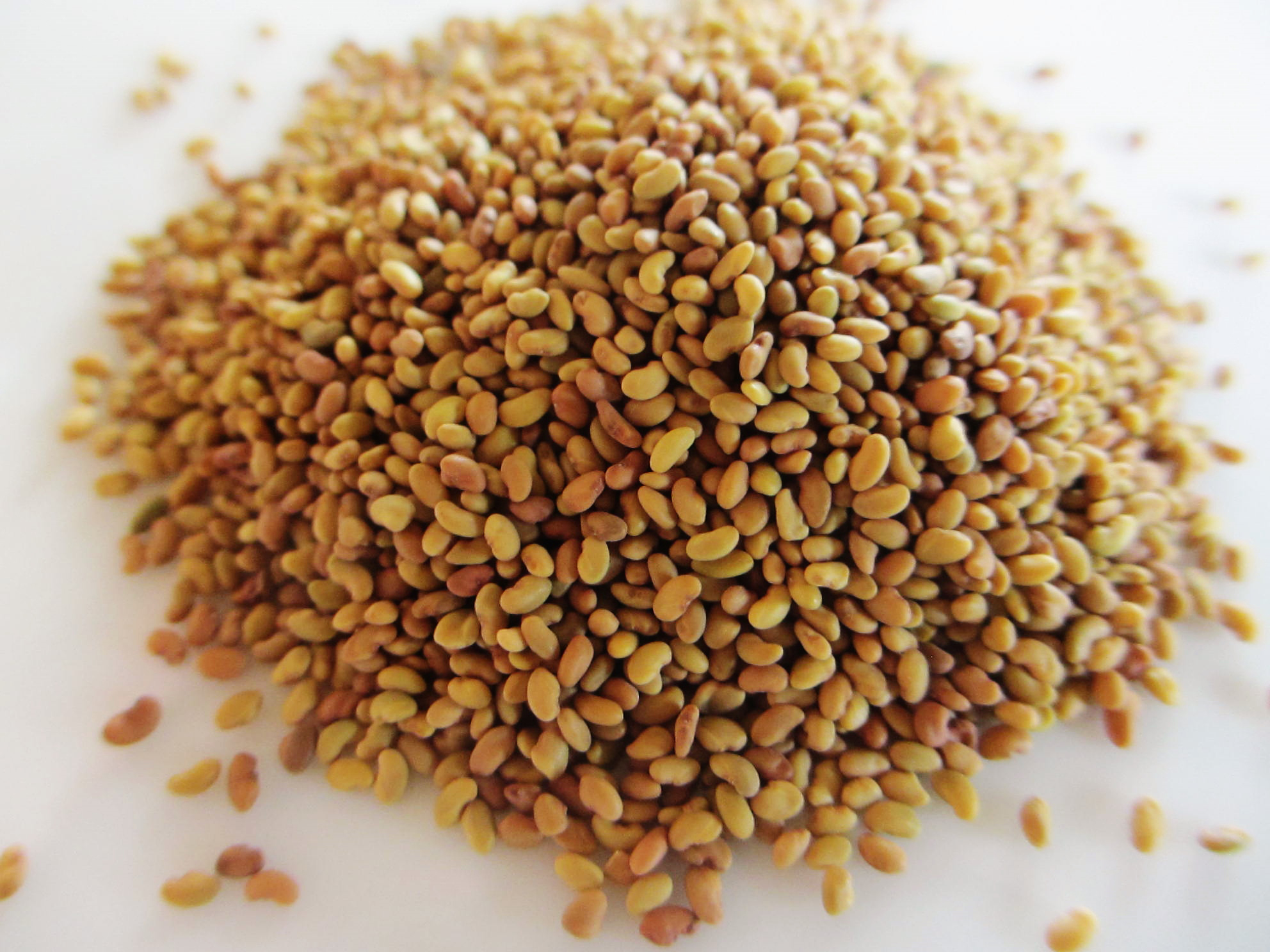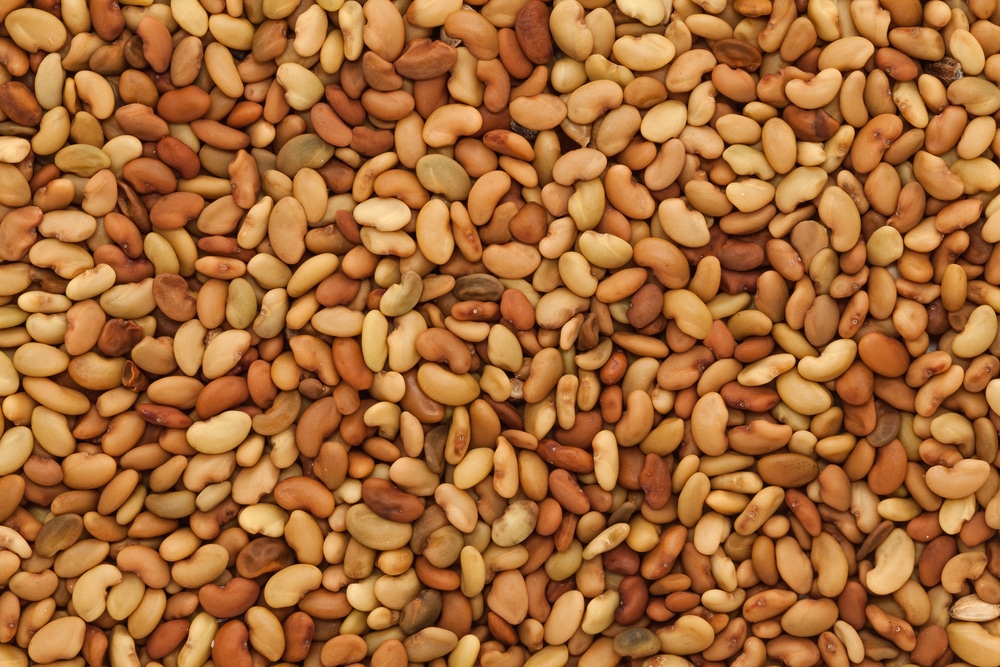What if a single plant held the key to enhancing both human and animal nutrition, while also improving soil health and offering versatility in culinary applications? Alfalfa, often hailed as the "Queen of Forage," answers this question with a resounding yes. Its multifaceted benefits and adaptability have secured its place as a cornerstone of sustainable agriculture and a valuable ingredient in various diets.
Alfalfa, scientifically known as Medicago sativa, is far more than just a common feed for livestock. Its significance stretches across agricultural practices, culinary trends, and nutritional science. This perennial plant, known for its deep roots and vibrant purple flowers, has a remarkable story to tell, a story that intertwines with the health of our planet and the well-being of its inhabitants. From the rolling fields where it thrives to the plates where it graces as sprouts, alfalfa's influence is undeniable.
To delve deeper into the world of Alfalfa, here's a comprehensive overview:
- Discover Blue Parrots Facts Care Stunning Species
- Milford Plaza History Review Of Nycs Iconic Hotel Now Row Nyc
| Category | Details |
|---|---|
| Botanical Name | Medicago sativa |
| Common Names | Alfalfa, Lucerne |
| Plant Type | Perennial Herbaceous Plant |
| Origin | Believed to be native to the Middle East |
| Root System | Deep taproot, can extend up to 15 feet |
| Growth Habit | Erect growing plant with a clumping growth habit |
| Flowers | Small, purple, and clustered in spikes at the top of the plant |
| Primary Uses | Forage crop, cover crop, sprouted seed for human consumption, ingredient in baked goods |
| Nutritional Value | High in protein, vitamins, and minerals |
| Adaptation | Well-adapted to sandy soils, good winterhardiness |
| Propagation | Primarily from seed, also from cuttings |
The widespread use of alfalfa as a forage crop is undisputed. Its the number one forage crop for horses, and generally, the most nutritious grass or hay to be fed to livestock. But its benefits extend beyond just feeding animals. Alfalfa is also an excellent cover crop. Sowing alfalfa seeds in the fall, particularly when preparing the land for the next season, helps prevent soil erosion and enhance soil structure. The deep root system of alfalfa not only allows it to reach water deep beneath the surface but also contributes to soil aeration. This makes it an ideal choice for sustainable agricultural practices.
However, the story of alfalfa doesn't end in the field. Alfalfa seeds have a remarkable culinary side. Commonly used as sprouted seeds, they add a fresh, crunchy element to salads, sandwiches, and soups. They can also be eaten as is, making them a convenient and nutritious snack. Beyond their use as sprouts, alfalfa seeds can be ground into a powder and mixed with cereal flours for making nutritionally enhanced breads and baked goods. This versatility makes alfalfa a valuable ingredient in both home kitchens and commercial food production.
Growing alfalfa from seed is a straightforward process, though attention to detail is key for optimal results. Most farmers cultivate alfalfa from seed, as it allows them to manage larger acreages efficiently. To successfully cultivate this versatile crop, one must consider both the timing and preparation of the soil. Here's a simple guide:
- Alder Trees Varieties Identification Facts You Need To Know
- Toyota Venza Find Deals Reviews Specs Save Today
- Soil Preparation: Before sowing, ensure the soil is well-prepared, providing the ideal environment for seed germination.
- Timing: In the spring, sow alfalfa once the danger of frost has passed. When using alfalfa as a cover crop, sow the seeds in the fall.
- Planting Depth: Alfalfa seeds need to be planted between 0.25 to 0.5 inch deep.
- Indicator of Proper Depth: Approximately 10% of the seed should be visible on the topsoil, indicating that the seeds haven't been planted too deep.
- Seed Selection: Choose varieties that exhibit high resistance to common diseases.
- Seeding Density: While a smaller amount of seed can be used, thicker sowing may result in hay and pasture of higher quality.
The beauty of alfalfa also lies in its sustainability. It is a perennial plant, which means it continues to thrive for more than two years, minimizing the need for annual replanting. It thrives in many soil conditions, with the exception of waterlogged lands. This longevity and adaptability make it an attractive option for farmers looking for long-term soil health and profitability.
The importance of alfalfa is well-documented. Its a vital component of a healthy environment and a nutritious human diet. The deep roots of the plant contribute to soil health, its rich composition providing essential nutrients. The versatility of alfalfa makes it an invaluable resource for farmers and consumers alike.
Alfalfa's versatility is a key factor in its success. Its ability to grow in various climates and its adaptability to different farming practices have made it a global crop. From Europe to North America, and across Asia, farmers rely on alfalfa to feed their livestock and improve their lands. The ease of harvesting alfalfa seeds also adds to its appeal. These tiny seeds, small compared to other legumes, can be gathered and processed efficiently, furthering its usefulness in the agricultural process.
Beyond its agricultural and culinary uses, alfalfa is also a source of premium quality for photography and illustrations. With a wealth of images and stock photos available, it provides creatives with endless inspiration. The vibrant fields, intricate flowers, and detailed sprouts have been used for educational purposes, advertisements, and artistic endeavors.
The availability of premium alfalfa seed is a key factor in ensuring the success of this remarkable plant. The selection of the highest quality seeds is essential, especially when planting alfalfa. Proper planning and attention to detail are crucial for optimal growing conditions. This starts with soil preparation, which involves making sure the soil is ready to support the new plants. One of the key factors to keep in mind is the depth, which needs to be at 0.25 to 0.5 inches.
The ability of alfalfa to withstand winter is also a key advantage. Good winter hardiness ensures a consistent supply of forage. The perennial nature of alfalfa means it continues to deliver its benefits for years, providing a sustainable approach to both agriculture and nutrition. Alfalfa continues to inspire people around the world through its diverse applications, from the fields to the kitchen.
Moreover, the nutritional value of alfalfa is a cornerstone of its widespread use. It is packed with essential nutrients that can benefit both livestock and humans. Alfalfa is a natural source of vitamins, minerals, and proteins, making it a valuable addition to diets and feeding programs. Whether used as a forage crop for livestock or as a sprouted seed in salads, alfalfa provides essential nutrients for a healthy life.
The use of alfalfa in sustainable agricultural practices further enhances its value. The deep root system helps the plants absorb nutrients and retain water, improving soil health and minimizing the need for irrigation. In addition to its versatility, alfalfa also demonstrates great resilience, continuing to grow in various climates and conditions. For successful germination, one of the key steps is the attention to detail when sowing alfalfa seeds. The proper soil preparation and seed depth are vital for the growth and development of this plant.
Alfalfa continues to inspire the interest of photographers and illustrators with its beautiful aesthetics. With a wealth of images and stock photos available, it serves as inspiration for creative projects in various fields. From education to marketing, the vibrant alfalfa fields, the tiny flowers, and the detailed sprouts have found their place in many creative works. Alfalfa is a story of persistence and adaptability, and in all its facets, it underscores the power of nature.


Detail Author:
- Name : Prof. Adrain Will V
- Username : lowe.nicholaus
- Email : eryn49@hotmail.com
- Birthdate : 2004-02-06
- Address : 37632 Bashirian Square East Blaise, CA 39816
- Phone : +1 (458) 893-3568
- Company : Huels Ltd
- Job : Recreational Therapist
- Bio : Dolor quia sed quidem. Totam earum non dolorem et ullam deserunt. Non magni est quod qui quia sapiente. Quo perferendis quia nobis molestiae ut quos quod sunt.
Socials
instagram:
- url : https://instagram.com/larkin1979
- username : larkin1979
- bio : Quisquam est quibusdam dolores voluptas consectetur. Voluptatem fuga sapiente corporis qui commodi.
- followers : 1216
- following : 2971
facebook:
- url : https://facebook.com/larkin2018
- username : larkin2018
- bio : Quibusdam dolorem officiis suscipit quasi natus.
- followers : 5142
- following : 737
tiktok:
- url : https://tiktok.com/@larkinh
- username : larkinh
- bio : Ab laudantium suscipit voluptates aliquam.
- followers : 5403
- following : 1503
twitter:
- url : https://twitter.com/harrison_larkin
- username : harrison_larkin
- bio : Eaque debitis ut quia asperiores corrupti unde. Sunt provident aut et cumque. Inventore id recusandae sapiente praesentium repudiandae quis.
- followers : 822
- following : 1295